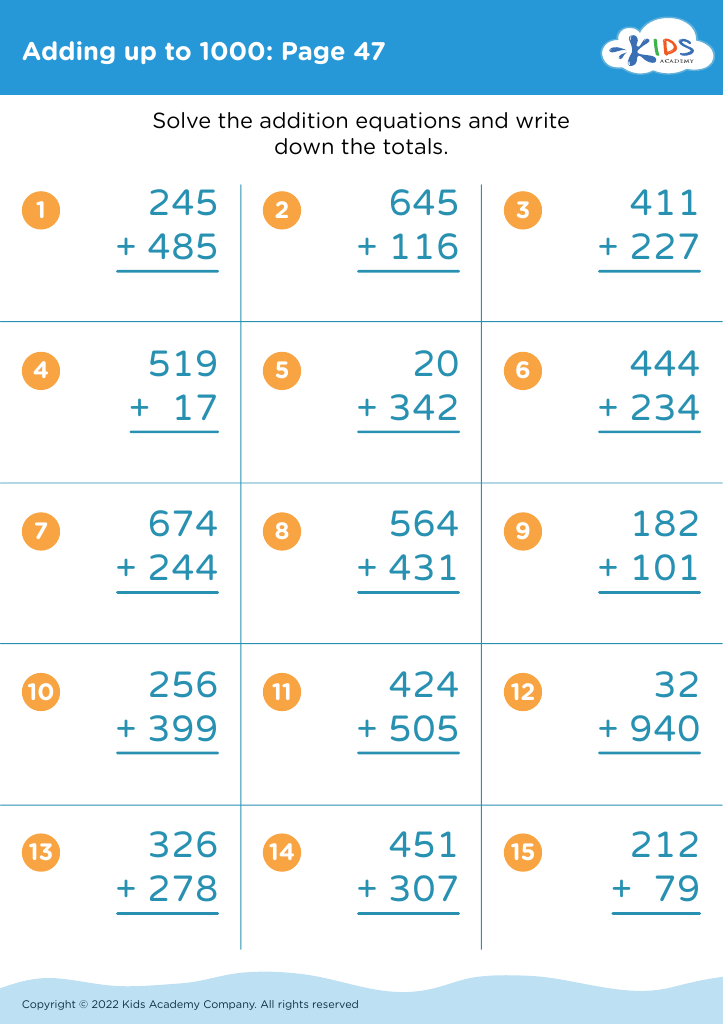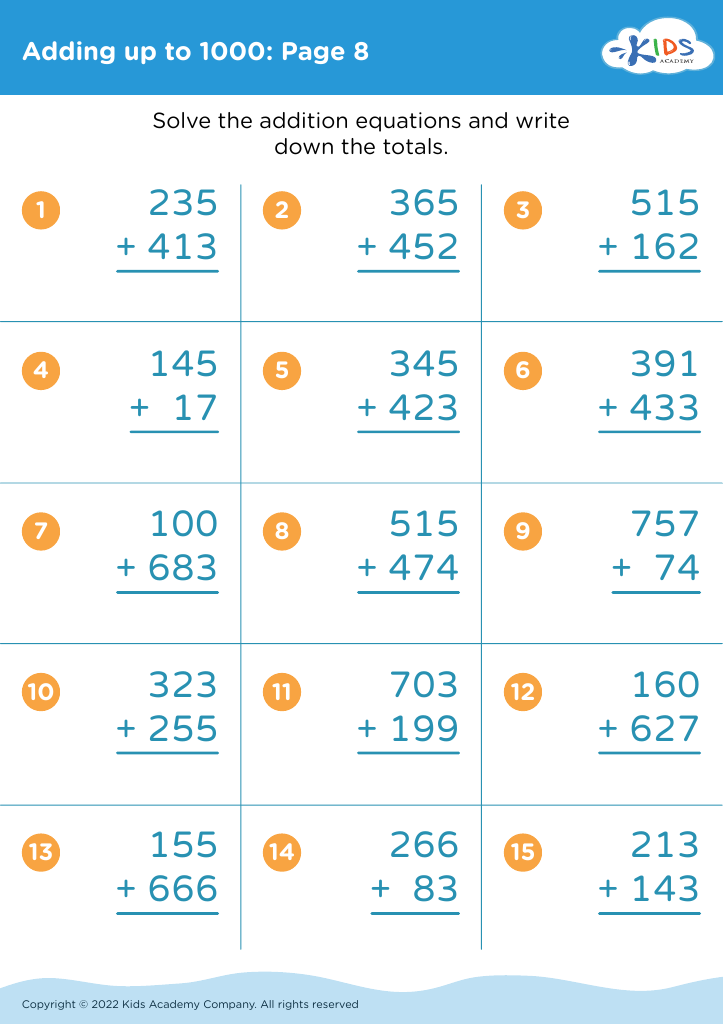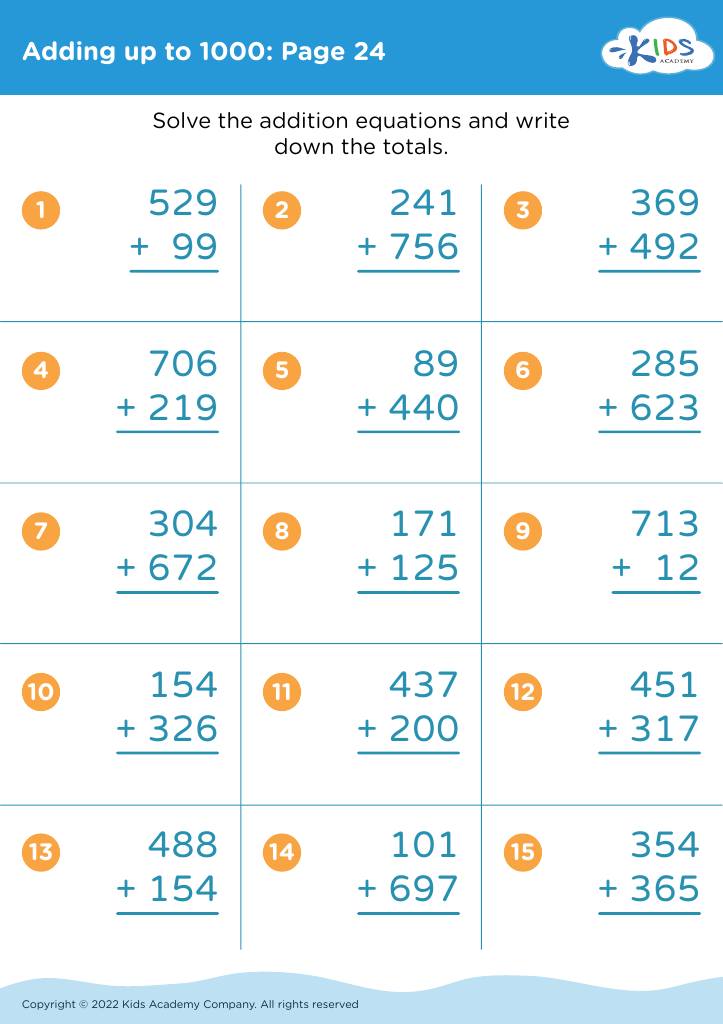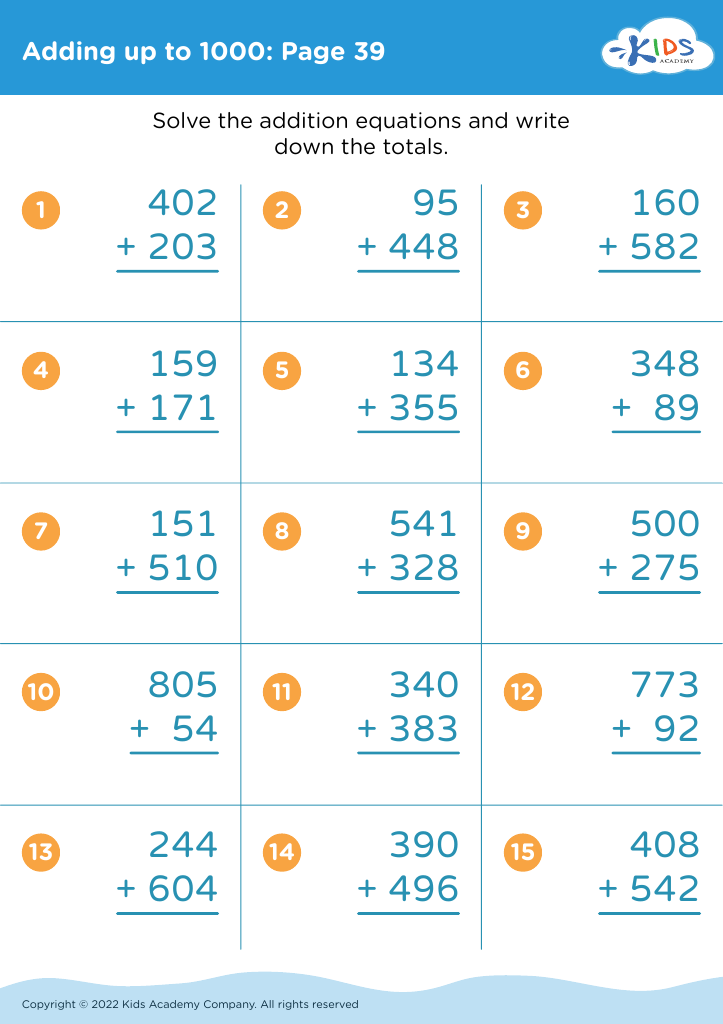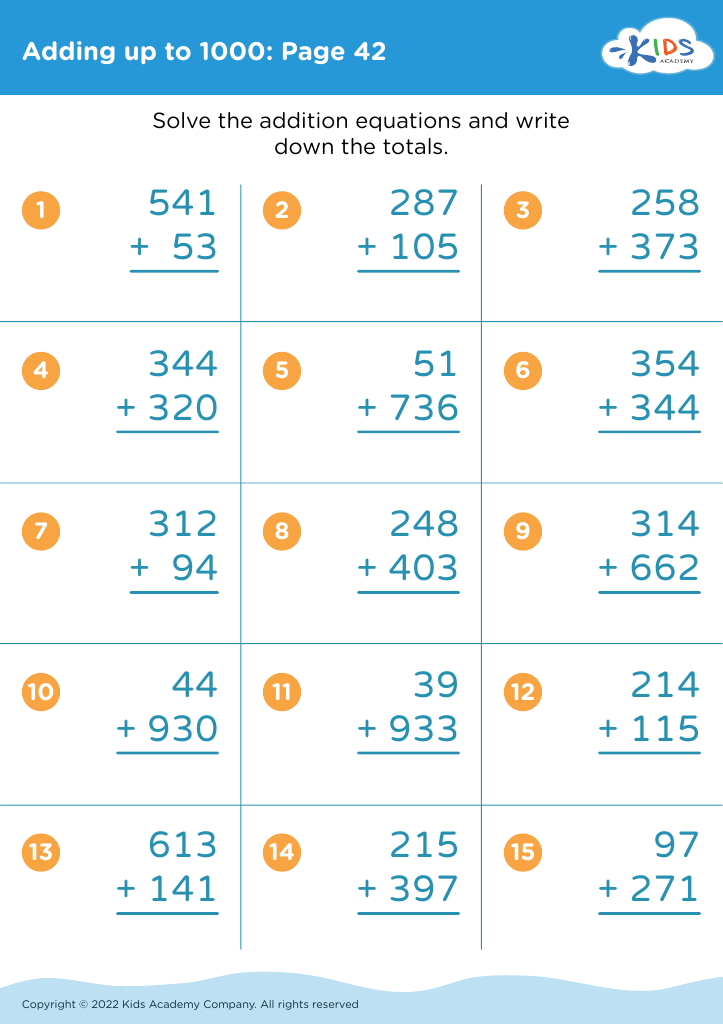Counting skills Adding up to 1000 Misc Worksheets for Ages 6-7
8 filtered results
-
From - To
Explore our comprehensive collection of "Counting Skills: Adding Up to 1000" worksheets designed specifically for 6-7-year-olds! These engaging activities facilitate young learners in mastering essential counting and addition skills. With a variety of exercises, children will practice counting by ones, fives, and tens, as well as learn to recognize and write numbers up to 1000. Each worksheet is crafted to enhance understanding through fun and interactive content. Perfect for classroom use or at-home learning, our materials cater to diverse learning styles, ensuring every child can develop their math abilities confidently. Start your journey to mathematical mastery today!
Counting skills, particularly the ability to add up to 1000, are crucial for children ages 6-7, laying a foundational block for their mathematical development. At this age, children are transitioning from simple counting to more complex numerical understanding. Mastering these skills helps to enhance their confidence in dealing with larger numbers, fosters logical thinking, and develops problem-solving abilities.
Parents and teachers should prioritize counting skills because they not only impact academic performance but also have real-world applications. Whether budgeting allowance, measuring ingredients in cooking, or managing time, foundational math skills are essential in everyday situations. Proficient counting allows children to better understand patterns, sequences, and the relationships between numbers, preparing them for advanced concepts in math as they progress.
Moreover, these skills are closely tied to critical cognitive abilities. Engaging children in counting activities aids in improving their attention span, memory, and focus—traits beneficial for learning across all subjects. By nurturing counting skills early, parents and educators provide children the tools for success, ensuring that they develop a positive relationship with math and become confident, capable learners. Ultimately, fostering counting skills creates a strong framework for future learning and overall cognitive growth.
